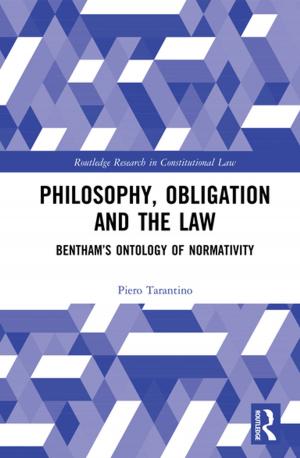How Public is Private Philanthropy? Separating Reality from Myth
Business & Finance, Industries & Professions, Nonprofit Organizations & Charities, Nonfiction, Reference & Language, Law, Constitutional| Author: | John Tyler | ISBN: | 9780985126599 |
| Publisher: | Philanthropy Roundtable | Publication: | June 18, 2012 |
| Imprint: | Smashwords Edition | Language: | English |
| Author: | John Tyler |
| ISBN: | 9780985126599 |
| Publisher: | Philanthropy Roundtable |
| Publication: | June 18, 2012 |
| Imprint: | Smashwords Edition |
| Language: | English |
In recent years, some public officials and advocacy groups have urged that private philanthropies be subject to more uniform standards and stricter government regulation ranging from board composition to grant distribution to philanthropies' charitable purposes. A major justification cited by advocates of these proposals is the claim that the charitable tax exemption and deduction are government subsidies, and thus philanthropic funds are "public money" and should be publicly controlled. Some advocates also claim that philanthropic assets are public money because philanthropies operate under state charters and are subject to state oversight.
In the second edition of this monograph, legal scholars Evelyn Brody and John Tyler evaluate the legal basis of the "public money" claim. They conclude that it is not well founded in legal authority. State oversight of philanthropies is not based on an assertion that philanthropies are subject to state direction or that their assets belong to the public, they write. Similarly, the fact that philanthropies have state charters does not make them state agencies or subject them to the constraints that apply to public bodies. Finally, the philanthropies and their donors receive their federal tax benefits in return for the obligation to pursue public rather than private purposes and to comply with the laws designed to ensure the pursuit of such purposes.
There is no evidence, Brody and Tyler find, that these benefits were meant to give government other types of control over philanthropies.
In recent years, some public officials and advocacy groups have urged that private philanthropies be subject to more uniform standards and stricter government regulation ranging from board composition to grant distribution to philanthropies' charitable purposes. A major justification cited by advocates of these proposals is the claim that the charitable tax exemption and deduction are government subsidies, and thus philanthropic funds are "public money" and should be publicly controlled. Some advocates also claim that philanthropic assets are public money because philanthropies operate under state charters and are subject to state oversight.
In the second edition of this monograph, legal scholars Evelyn Brody and John Tyler evaluate the legal basis of the "public money" claim. They conclude that it is not well founded in legal authority. State oversight of philanthropies is not based on an assertion that philanthropies are subject to state direction or that their assets belong to the public, they write. Similarly, the fact that philanthropies have state charters does not make them state agencies or subject them to the constraints that apply to public bodies. Finally, the philanthropies and their donors receive their federal tax benefits in return for the obligation to pursue public rather than private purposes and to comply with the laws designed to ensure the pursuit of such purposes.
There is no evidence, Brody and Tyler find, that these benefits were meant to give government other types of control over philanthropies.















